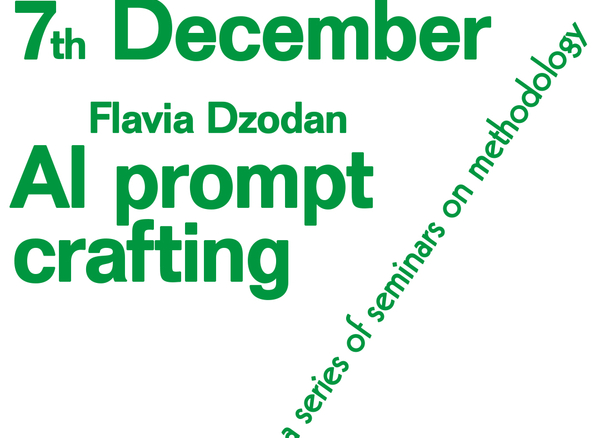Research Group on Algorithmic Cultures (RAC)
Guided by an approach that blurs lines between art and science, senior researcher Flavia Dzodan, has begun researching the topics of artificial intelligence, algorithms and new technologies at Rietveld Sandberg Research. Since these topics are too broad and encompassing, too urgent to remain confined only to the realm of science, we believe that art and artistic research cannot and should not avoid them. Instead, they should become central to the way we think of artificial intelligence and the role of the artist and the designer in these technologies. The research can take many forms and we consider research in Artificial Intelligence to be a truly interdisciplinary field that is open for artists, designers, thinkers and makers to explore the facets of technologies that shape culture, politics and human experiences.
An algorithm can be considered a comprehensive set of instructions for accomplishing a specific task. This concept finds its roots in mathematics, representing a systematic, sequential problem-solving process. Everyday processes like multiplication and division of numbers exemplify the application of algorithms. These procedures, meticulously defined with clear instructions for each step, consistently produce identical outcomes, regardless of whether a computer or a human being executes them.1
1: Roman Verotsko, ‘Algorithmic Art. Composing the Score For Visual Art’, (1994 with edits in 1996 & 1998) http://www.verostko.com/algorithm.html (accessed 05 February 2024).
In the past, ancient societies devised systematic methods for quantifying and assessing various aspects of their environment. Additionally, they formulated systematic approaches for activities such as fabric production, grinding, ignition, and cooking. When precisely articulated and structured, these methods could be regarded as algorithms. Notably, the field of weaving technology holds significance in the historical evolution of computing. The fundamental concept is that if we can articulate a step-by-step procedure for accomplishing a specific task and possess the requisite resources and expertise, then the execution of that task becomes achievable.2
2: Ibid.
Before Computers even existed as a fantasy, people Programmed Looms. Prior to the IBM punch-card computers and Charles Babbage's Analytical Engine, an early mechanical device capable of executing tasks resembling what we presently refer to as a 'program' existed: a loom. This machine possessed the capability to handle extensive data processing to the extent that the resulting fabric it manufactured could exhibit intricately detailed images that could be easily confused with engravings.3
3: Sarah Laskow, ‘Before Computers, People Programmed Looms’, The Atlantic, September 16, 2014, https://www.theatlantic.com/technology/archive/2014/09/before-computers-people-programmed-looms/380163/ (accessed 05 February 2024).
In this artistic evolution, from looms to produce fabrics with programmed patterns to fractal art created through complex mathematical operations, artificial intelligence is a logical addition to the research capabilities of an institute such as Sandberg Instituut.
As part of the Artificial Intelligence cell, Flavia Dzodan has set up a monthly research cafe, supervises CrD candidate Femke Herregraven and the fellowships, runs a monthly lecture series open to the public and participates in symposia, workshops and events outside the Sandberg Instituut.
The team
Flavia Dzodan is a senior researcher and writer at the Research Group on Algorithmic Cultures at Gerrit Rietveld Academie. Even though much of her work comes out of academic research and theory as part of her work at Sandberg Instituut, Flavia takes pains to point out the non-academic nature of her practice. She describes herself as a “scavenger” of theory, an outsider who collects and assembles bits and pieces of existing ideas and hypotheses to construct her own discourse. In her case, this discourse is a sharp and critical analysis of algorithms and digital culture at the intersection of race and gender politics. She places particular emphasis on the way in which the colonial agenda of the past mutates and persists in our digital tools, cultural products, surveillance systems, networks, and data flows.
The Prompt Whisperer research group
The Prompt Whisperer research group started in February 2023 and is formed by Mariana Fernández Mora, Barbara Visser, Zachary Formwalt, Benjamin Schoonenberg and Roosje Klap. They join Flavia Dzodan (Senior Researcher of the research group Algorithmic Cultures) and Eva Hoonhout (coordinator of the research group Algorithmic Cultures) and meet on a monthly basis to discuss theoretical and artistic research about the way that algorithms and different manifestations of Artificial Intelligence shape not only artistic production but also the wider societal and political implications of these technologies.
Website & contact
For more information about our research activities at Rietveld Sandberg Research please visit our website research.rietveldsandberg.nl or contact the Research Bureau: researchsupport[at]rietveldacademie.nl.

